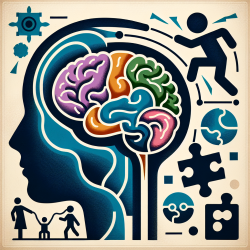According to the World Health Organization (WHO), the INSPIRE framework outlines seven strategies for ending violence against children, emphasizing a public health approach. This framework includes:
- Implementation and enforcement of laws
- Norms and values
- Safe environments
- Parent and caregiver support
- Income and economic strengthening
- Response and support services
- Education and life skills
AI, Big Data, and mHealth technologies can significantly enhance these strategies. Here's how:
AI and Big Data
AI and Big Data can be leveraged for:
- Risk Prediction: AI can analyze large datasets to predict areas and individuals at higher risk of violence, enabling targeted interventions.
- Agent-Based Modeling: These models can simulate the effects of various interventions on violence rates, helping policymakers optimize resource allocation.
- Mental Health Support: AI-driven tools can assist mental health professionals in diagnosing and treating conditions related to violence exposure.
mHealth
mHealth technologies offer several advantages:
- Information Dissemination: Mobile apps and websites can provide crucial information and support to victims of violence.
- Intervention Delivery: Programs like Zoo U and KiVa use games and interactive content to teach children social skills and prevent bullying.
- Parent and Caregiver Support: Apps like Ginger and WoeBot offer mental health support, reducing stressors that can lead to violence.
Implementing These Technologies
For practitioners, integrating these technologies requires a multi-faceted approach:
- Training: Healthcare providers should be trained in using AI and mHealth tools effectively.
- Data Quality: Reliable and valid data is crucial for AI to make accurate predictions.
- Ethical Considerations: Addressing privacy and bias in AI applications is essential to ensure fair and effective interventions.
In conclusion, AI, Big Data, and mHealth hold immense potential to revolutionize violence prevention for children. However, these technologies must be implemented thoughtfully, with attention to data quality, ethical considerations, and integration into existing systems.
To read the original research paper, please follow this link: Artificial Intelligence, Big Data, and mHealth: The Frontiers of the Prevention of Violence Against Children.










